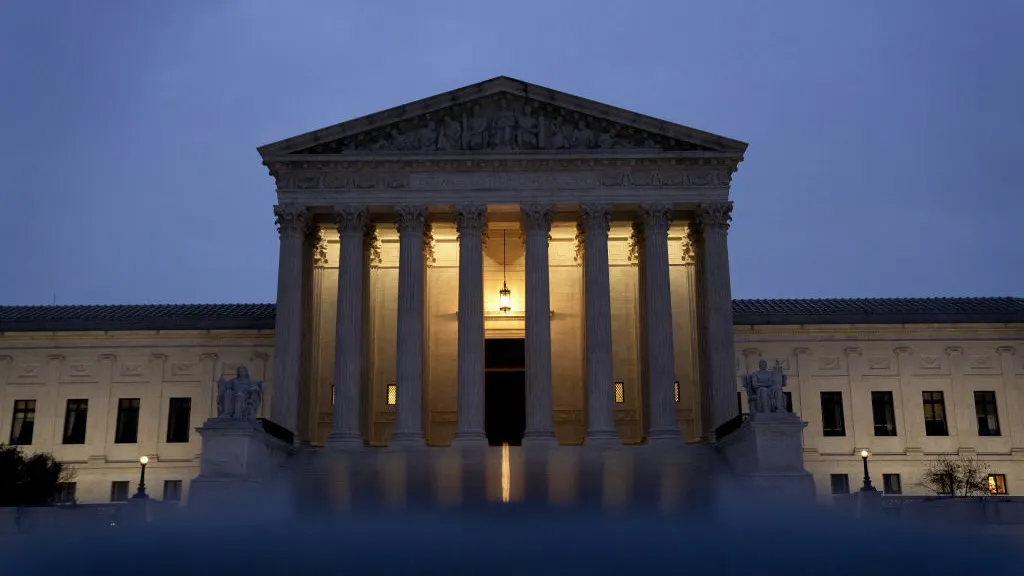On Wednesday, the Supreme Court heard arguments regarding a case out of Maine that concerns two intense topics of debate — religious freedom and school choice — and the court seemed unsure about a school tuition program in Maine that specifically bars sectarian schools.
According to Ballotpedia, the case is called Carson v. Makin and concerns a program created by the Maine State Legislature, which provided tuition assistance for students to go to private or public schools either outside or inside of Maine. “Private schools labeled as sectarian by the state were not approved for funding,” the outlet noted.
Initially, a U.S. district court sided with the state of Maine. Parents had gone to federal court and “argued that the exclusion of religious schools from Maine’s tuition-assistance program likewise violates the free exercise clause,” per SCOTUS Blog.
According to SCOTUS Blog, the U.S. Court of Appeals for the 1st Circuit “rejected the parents’ challenge to the Maine program,” stating that the Maine law “does not bar schools from receiving funding simply based on their religious identity.”
Instead, the court of appeals explained, the exclusion examines “what the school teaches through its curriculum and related activities,” and the law prohibits schools from receiving funding because of the “religious use” to which they would put the funds. The law, the court of appeals concluded, “merely reflects Maine’s refusal to subsidize religious exercise.”
Two sets of parents took the case to the Supreme Court in hopes of getting it reviewed. The high court agreed to hear the case earlier this year.
The question presented to the court by the petitioners was:
Does a state violate the Religion Clauses or Equal Protection Clause of the United States Constitution by prohibiting students participating in an otherwise generally available student-aid program from choosing to use their aid to attend schools that provide religious, or “sectarian,” instruction?
The case also involves precedent from a 2020 decision on Espinoza v. Montana Department of Revenue, wherein the “Court held that a state may not exclude families and schools from participating in a student-aid program because of a school’s religious status.” However, the petitioners stated that the court “acknowledged, but did not resolve, the question of whether a state may nevertheless exclude families and schools based on the religious use to which a student’s aid might be put at a school.”
As reported by CNN after the arguments were heard on Wednesday, the Supreme Court seemed unsure about the Maine program that bars specific religious schools from the project.
“Conservative justices such as Samuel Alito, Clarence Thomas, Neil Gorsuch and Brett Kavanaugh suggested that if a state makes the choice to provide a public benefit, it can’t exclude schools based on the fact that they teach the curriculum through the lens of faith,” the outlet noted.
Michael Bindas, arguing on behalf of the petitioners, told the court on Wednesday, “Maine’s sectarian exclusion discriminates based on religion. Like all discrimination based on religion, it should be subjected to strict scrutiny and held unconstitutional unless Maine can show that it is necessary to achieve a compelling government interest.”
Justice Stephen Breyer explained his concern in getting involved in a case concerning religious freedom and schooling.
Breyer said, “And what’s worrying me is — is that if the school — if the state must give money to the schools, they’re going to get into all kinds of religious disputes. … And religious beliefs, of course, are — are very sincere and held very strongly. And so there was a reason why this Court’s cases have said we do not want to get into a situation where the state is going to pay for the teaching of religion by religious — you know, practicing religious organizations, and — and that seems to me to stick its head up in a lot of different aspects of this case.”
Bindas noted, “This program does not fund schools. And if religious schools were allowed to participate, it does not fund schools. It funds families.”
At one point, Justice Neil Gorsuch asked, “So religious schools are forbidden regardless whether or not they’re going to participate?”
Bindas answered, “Solely because they are religious.”
Christopher C. Taub argued on behalf of the state, explaining, “The reason that schools that promote a particular faith are not eligible to participate is simple. Maine has determined that, as a matter of public policy, public education should be religiously neutral. This is entirely consistent with this Court’s holdings that public schools must not inculcate religion and should instead promote tolerance of divergent religious views.”
Toward the end of the arguments, Justice Brett Kavanaugh pointed out the position of the religious families who wished to send their children to a specific school. Kavanaugh said, “… [A]s I understand it, they are seeking equal treatment, not special treatment. They’re — they’re saying don’t treat me worse because I want to send my children to a religious school rather than a secular school. Treat me the same as the secular parent next door. I think that’s what they are asking for, is equal treatment.”
U.S. Deputy Solicitor General Malcolm Stewart, who spoke in support of the state, said, “they are certainly characterizing what they are asking for as equal treatment. But Maine’s view and our view is they are seeking a benefit different from the one that Maine is willing to provide.”

.png)
.png)

